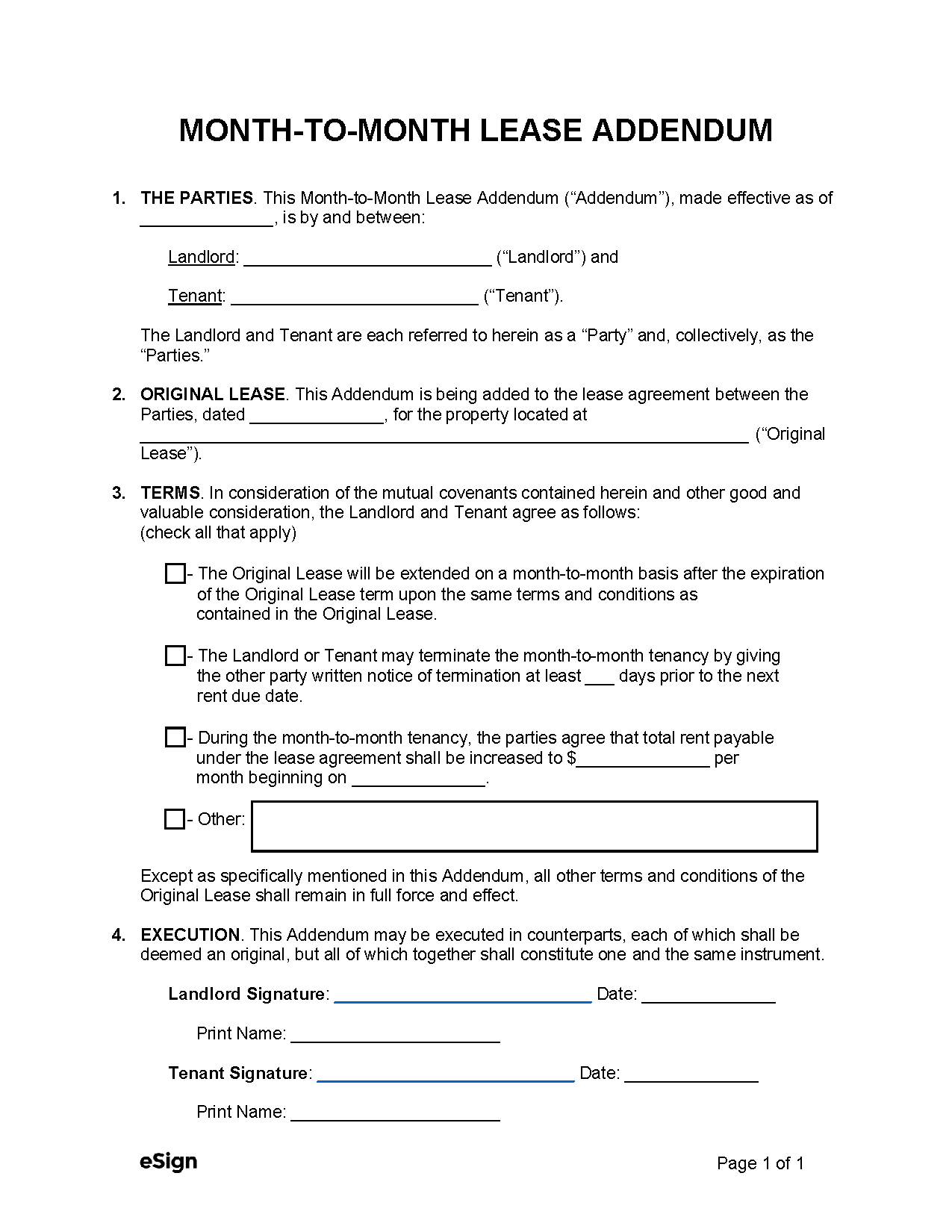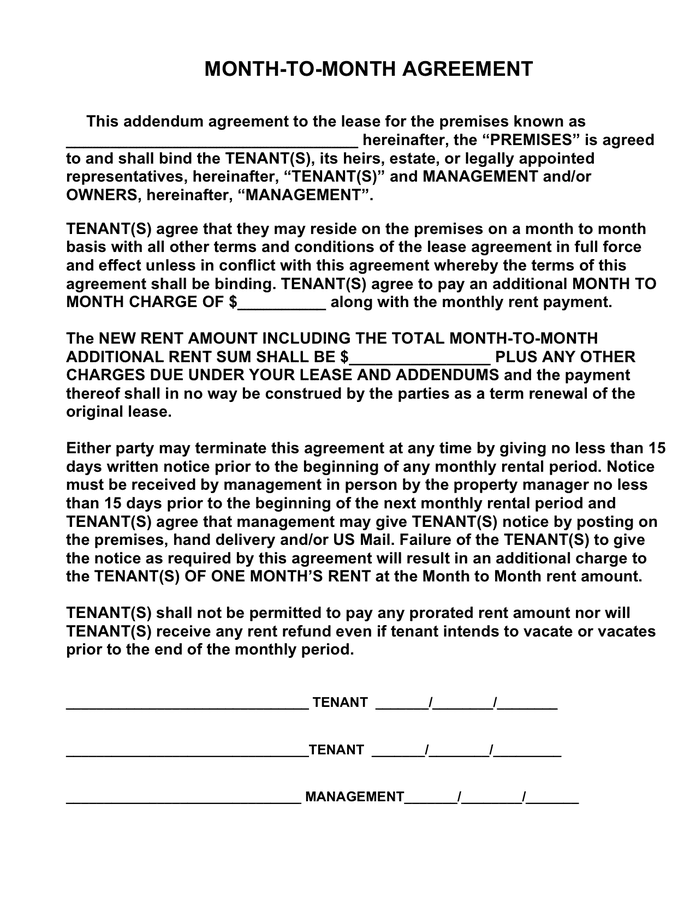What Are Your Rights as a Month-to-Month Tenant? Key Legal Protections
What Are Your Rights as a Month-to-Month Tenant? Key Legal Protections
Blog Article
Moving the complexities of evictions below month-to-month lease tenant rights can be challenging—whether you're a landlord or even a tenant. Unlike fixed-term leases, month-to-month agreements give mobility for both events, but they also come with unique challenges, specially when eviction is on the horizon. Here, we breakdown the key facets of handling evictions below these agreements, providing clarity and actionable advice for several parties involved.
Understanding Month-to-Month Tenant Rights
Month-to-month tenancy, since the title suggests, operates on a monthly basis and an average of renews immediately until one party provides notice to terminate. Tenants and landlords likewise are at the mercy of the phrases put down in their rental deal alongside applicable state and regional laws.
Tenants who book month-to-month have unique rights depending on their jurisdiction. These can contain lease termination notice intervals, rights against retaliatory evictions, and access to particular tenant rights when disputes arise. On the change part, landlords retain the ability to stop tenancy with appropriate discover and trigger, if applicable.

To deal with evictions properly, it's essential to familiarize your self with the neighborhood regulations governing tenant rights and landlord obligations in your area. That knowledge types the foundation of moving the method legitimately and ethically.
Legal Notice Requirements for Evictions
One of the most important facets of evictions below month-to-month agreements is issuing or obtaining a suitable notice to vacate. State and local regulations requirement just how much notice a landlord must provide before terminating a month-to-month tenancy.
As an example:
Common Notice Times: Many states involve landlords to offer 30 days' detect to stop a month-to-month rental agreement. However, that time may possibly extend to 60 days in certain jurisdictions.
Observe for Nonpayment: If lease hasn't been paid, landlords an average of have to matter a "pay or quit" observe, giving tenants a set period of time to cover outstanding fees or vacate the property.
No-Cause Terminations: Certain local regulations might allow landlords to stop month-to-month tenancies without trigger but require longer notice periods.
Failing to adhere to proper legal discover recommendations can invalidate an eviction attempt and may end in penalties for the landlord. Tenants should also understand their rights under these observe demands to ensure their agreements are terminated lawfully.
Steps for Landlords to Conduct Legal Evictions
For landlords, evicting a tenant below a month-to-month lease involves rigid conformity with equally rental agreements and the law. Here's a step-by-step information:
Serve Proper Recognize
Issue the state notice to vacate in line with regional regulations. Guarantee this includes the reason for firing, if required, and matches the necessary discover period.
File Everything
Hold complete files of rental obligations, lease violations, and any connection with the tenant. This paperwork will soon be necessary if the eviction proceeds to court.
File an Eviction Lawsuit (If Necessary)
If the tenant will not vacate after proper observe, landlords could need to file an unlawful detainer or eviction case. This escalates the problem to judge, in which a determine could make a determination.
Follow Judge Requests
Should the court rule and only the landlord, an official notice or writ of possession will undoubtedly be offered to police to carry out the eviction. Landlords should prevent attempting to forcibly remove the tenant themselves, as this violates the law.
Tenants'Recourse for Unlawful Evictions
Tenants experiencing eviction under month-to-month agreements have rights that protect them from unlawful displacement. In case a recognize appears unpredictable or retaliatory, tenants may possibly:
Raise the Problem of Incorrect Discover
If the notice doesn't meet appropriate criteria (e.g., inadequate schedule or cloudy reasoning), tenants may increase this security both right with the landlord and in court.
Cite Retaliation Protections
Particular jurisdictions forbid evictions made in reaction to tenants exercising legal rights (e.g., processing an issue about dangerous conditions).
Work with Tenant Advocacy Groups
Local businesses and legitimate help groups provides advice to tenants on navigating disputes and seeking illustration in court proceedings.

Avoiding Eviction Disputes
Ultimately, landlords and tenants likewise benefit from open and clear communication all through month-to-month agreements. Handling dilemmas early, such as late funds or misconceptions about terms, can frequently reduce an eviction from becoming necessary.
For landlords, ensuring compliance with state laws and maintaining skilled, respectful transmission pieces a basis for successful tenant relationships. Tenants, on another give, should honor the terms of their agreements while outstanding knowledgeable about their appropriate protections.
Final Thoughts
Evictions under month-to-month tenant rights require handling legal obligations and ethical considerations. Both landlords and tenants must understand their tasks, rights, and responsibilities to ensure the process is handled fairly and lawfully. When in doubt, consult a legal qualified focusing on property law to steer you through the process. Report this page